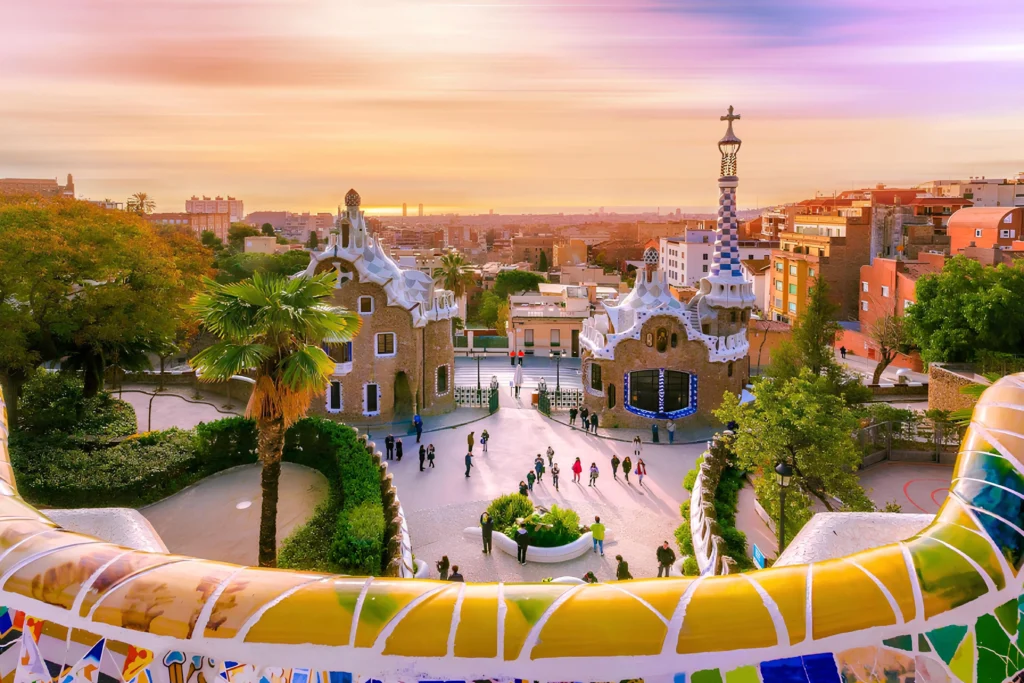Spain Visa Eligibility Required
Eligibility to apply for the Spain Visa depends on nationality, the reason for your visit to Spain, and visa being sought. In your case, a valid passport which possesses at least six months validity upon your visit to Spain should exist.
The type of visa will determine your proof of financial resources with which you intend to support yourself in Spain, which would be any bank statements or letter of employment or maybe even accommodation. Visitors are further required to pass health tests and character tests. Someone who has been convicted of an offense is likely not to find a visa readily. All the travelers are obligated to hold medical insurance for the cost incurred in Spain. Along with travel documents comprising flight tickets and accommodation, all requirements need to be fulfilled. If a person applies for a business visa, there must be an invitation letter from some Spanish company.
Widen Your World - Visa-Free Spain Travel for Citizens
Citizens of certain countries that share visa-free agreements with Spain are permitted to stay in Spain for a short period, up to 90 days within the Schengen Area, which hosts Spain. Their countries of origin are exempted from applying for a Spain Visa for tourism, business, or family visits. This right is reserved for members and a number of other countries in the EU.
It would be important to determine whether your country is included in the visa-exempt countries before your application process. A Spain Visa would still be required for extended periods of stay or some specific travel purposes.
Why is the Spain Visa Application Online Important for VisitsVisa?
This process, the Spain Visa Application Online, has eased visa applications so that it takes less hassle to apply for visas. You can also get your visa from wherever you are if there's internet access anywhere in this world without losing too much time and energy. With this procedure, all your documents can be digitized to be uploaded, and it saves a lot of effort, which would have taken had the visa been submitted in person.
VisitsVisa further ascertains that your application is correctly filled out to avoid any mistakes that can lead to delays or a rejection. Besides that, the online submission of the application gives an opportunity to check on how your application is faring with the authorities without leaving the confines of your home. That way, traveling to Spain becomes less of a bother for the travelers as this process is easier. It applies on VisitsVisa to get professional help and assistance in any stage and process.




 Qatar
Qatar  Kuwait
Kuwait Oman
Oman Yemen
Yemen Saudi Arabia
Saudi Arabia  Bahrain
Bahrain Egypt
Egypt UAE-Visa
UAE-Visa India
India  Turkey
Turkey Romania
Romania Russia
Russia Ukraine
Ukraine United Kingdom
United Kingdom Canada
Canada  United State of America
United State of America  Singapore
Singapore Malaysia
Malaysia  Japan
Japan  Thailand
Thailand  Mexico
Mexico  Hong Kong
Hong Kong  Philipines
Philipines Vietnam
Vietnam  Armenia
Armenia  kazakhstan
kazakhstan  Australia
Australia New Zealand
New Zealand South Korea
South Korea South Africa
South Africa Uganda
Uganda Ghana
Ghana Kenya
Kenya Sudan
Sudan Morocco
Morocco Israel
Israel Syria
Syria Lebanon
Lebanon Iran
Iran Iraq
Iraq Azerbaijan
Azerbaijan  Austria
Austria  Belgium
Belgium The czech republic
The czech republic Denmark
Denmark Estonia
Estonia Finland
Finland France
France Germany
Germany Greece
Greece Hungary
Hungary  Iceland
Iceland Italy
Italy Latvia
Latvia Liechtenstein
Liechtenstein Lithuania
Lithuania Luxembourg
Luxembourg Malta
Malta Netherland
Netherland Norway
Norway Poland
Poland Portugal
Portugal Slovakia
Slovakia Slovenia
Slovenia Slovenia
Slovenia Sweden
Sweden Switzerland
Switzerland Afghanistan
Afghanistan Albania
Albania Algeria
Algeria American Samoa
American Samoa Andorra
Andorra Angola
Angola Anguilla
Anguilla Antigua and Barbuda
Antigua and Barbuda Argentina
Argentina  Aruba
Aruba  Bahamas
Bahamas  Bangladesh
Bangladesh  Barbados
Barbados  Belarus
Belarus  Belize
Belize  Benin
Benin  Bermuda
Bermuda  Bhutan
Bhutan  Bolivia
Bolivia  Bosnia and erzegovina
Bosnia and erzegovina  Botswana
Botswana  Brazil
Brazil  Brunei
Brunei  Bulgaria
Bulgaria  Burkina Faso
Burkina Faso  Burundi
Burundi  Cambodia
Cambodia  Cameroon
Cameroon  Cape Verde
Cape Verde  Cayman Islands
Cayman Islands  Central African public
Central African public  Chad
Chad  Chile
Chile  Colombia
Colombia  Comoros
Comoros  Cook Islands
Cook Islands  Costa Rica
Costa Rica  Croatia
Croatia  Cuba
Cuba  Cyprus
Cyprus  Democratic Republic of Congo
Democratic Republic of Congo Djibouti
Djibouti  Dominica
Dominica  Dominican Republic
Dominican Republic  El Salvador
El Salvador  Equatorial Guinea
Equatorial Guinea  Eritrea
Eritrea  Ethiopia
Ethiopia  Faroe Islands
Faroe Islands  Fiji
Fiji  Gabon
Gabon  Gambia
Gambia  Georgia
Georgia  Greenland
Greenland  Grenada
Grenada  Guadeloupe
Guadeloupe  Guam
Guam Guatemala
Guatemala  Guinea
Guinea  Guyana
Guyana  Haiti
Haiti  Honduras
Honduras  Indonesia
Indonesia  Ireland
Ireland  Ivory Coast
Ivory Coast  Jamaica
Jamaica  Jordan
Jordan  Kiribati
Kiribati  Kosovo
Kosovo  Kyrgyzstan
Kyrgyzstan  Laos
Laos  Lesotho
Lesotho  Liberia
Liberia  Libya
Libya  Macao
Macao  Madagascar
Madagascar  Malawi
Malawi  Maldives
Maldives  Mali
Mali  Marshall Islands
Marshall Islands  Martinique
Martinique  Mauritania
Mauritania  Mauritius
Mauritius  Mayotte
Mayotte  Micronesia
Micronesia  Maldova
Maldova  Monaco
Monaco  Mongolia
Mongolia  Montenegro
Montenegro  Mozambique
Mozambique  Myanmar
Myanmar  Namibia
Namibia  Nauru
Nauru  Nepal
Nepal  New Caledonia
New Caledonia  Nicaragua
Nicaragua  Niger
Niger  Nigeria
Nigeria  Norfolk Island
Norfolk Island  North Korea
North Korea  North Macedonia
North Macedonia Pakistan
Pakistan  Palau
Palau  Palestine
Palestine  Panama
Panama  Papua New Guinea
Papua New Guinea  Paraguay
Paraguay  Peru
Peru  Puerto Rico
Puerto Rico  Republic of the Congo
Republic of the Congo  Reunion
Reunion  Rwanda
Rwanda  Saint Helena
Saint Helena  Saint Kitts and Nevis
Saint Kitts and Nevis  Saint Lucia
Saint Lucia  Saint Vincent and the Grenadines
Saint Vincent and the Grenadines  Samoa
Samoa  Sao Tome and Principe
Sao Tome and Principe  Senegal
Senegal  Serbia
Serbia  Seychelles
Seychelles  Sierra Leone
Sierra Leone  Solomon Islands
Solomon Islands  Somalia
Somalia  South Sudan
South Sudan  Sri Lanka
Sri Lanka  Suriname
Suriname  Swaziland
Swaziland  Taiwan
Taiwan  Tajikistan
Tajikistan  Tanzania
Tanzania  Timor-Leste (East Timor)
Timor-Leste (East Timor)  Togo
Togo  Tonga
Tonga  Trinidad and Tobago
Trinidad and Tobago  Tunisia
Tunisia  Turkmenistan
Turkmenistan  Turks and Caicos Islands
Turks and Caicos Islands  Tuvalu
Tuvalu  Uruguay
Uruguay  Uzbekistan
Uzbekistan  Vanuatu
Vanuatu  Vatican City
Vatican City  Venezuela
Venezuela  Zambia
Zambia  Zimbabwe
Zimbabwe  EU
EU  San Marino
San Marino  GCC
GCC China
China  Ecuador
Ecuador  Guinea Bissau
Guinea Bissau 